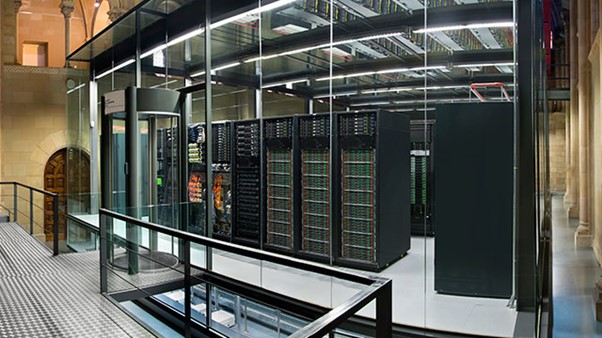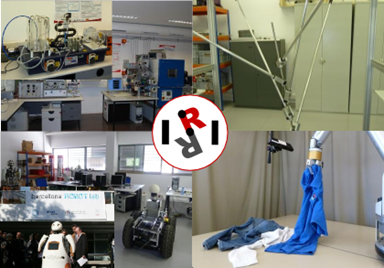Technical Visits
On the 21st of October 2022, the fourth day of the 12th EASN International Conference, participants will have the opportunity to explore two innovative and advanced technological destinations of Barcelona's research ecosystem.
Both visits will run on the morning of the 21st of October 2022 and registration is necessary as there is a maximum capacity of attendees for each visit. Passes for the technical visits will be given to those delegates already registered for the preferred visit on a first-come-first-served basis. All technical visits will be done in the English language. More specific information for each one of the technical destinations can be found below:
1. BSC-CNS - Barcelona Supercomputing Center
Since its creation in 2005, the BSC has developed an active role in fostering HPC in Spain and Europe as an essential tool for international competitiveness in Science and Engineering. The centre manages the Red Española de Supercomputación (RES) and is a hosting member of the Partnership for Advanced Computing in Europe (PRACE) initiative. We actively participate in the main European HPC initiatives, in close cooperation with other European supercomputing centres.
 With a total staff of more than 400 R&D experts and professionals, BSC has been successful in attracting talent, and our research focuses on four fields: Computer Sciences, Life Sciences, Earth Sciences and Computer Applications in Science and Engineering.
With a total staff of more than 400 R&D experts and professionals, BSC has been successful in attracting talent, and our research focuses on four fields: Computer Sciences, Life Sciences, Earth Sciences and Computer Applications in Science and Engineering.
Most of BSC's research lines are developed within the framework of European Union research funding programmes, and the centre also does basic and applied research in collaboration with leading companies such as IBM, Microsoft, Intel, Nvidia, Repsol and Iberdrola. The quality of our investigation has been recognized by the Spanish government with the Severo Ochoa Excellence Centre grant for cutting edge Spanish science.
Website: www.bsc.es
When: 1. Tour A: 11:45 CET / 2. Tour B: 12:45 CET.
How: Technical visit for two groups of 30 people
2. Institut de Robòtica i Informàtica Industrial (IRI)
The Institut de Robòtica i Informàtica Industrial is a Joint Research Center of the Spanish National Research Council (CSIC) and the Technical University of Catalonia (UPC). The Institute has three main objectives:
- to promote fundamental research in Robotics and Applied Informatics,
- to cooperate with the community in industrial technological projects, and
- to offer scientific education through graduate courses.
 The Institute's research activities are organized in four research lines:
The Institute's research activities are organized in four research lines:
- Automatic Control: The AUTOMATIC CONTROL line develops basic and applied research in automatic control, with special emphasis on modeling, control, and supervision of nonlinear, complex, and/or large-scale systems. The group has acquired specific expertise in the application of advanced control techniques to environmental resources management, specifically in the water and energy fields.
- Computational Robotics: The COMPUTATIONAL ROBOTICS Group carries out research on the design, construction, motion analysis, and control of complex mechanisms and structures. In robotics, these devices are parallel manipulators, multi-fingered hands, reconfigurable mechanisms, or cooperating robots, to name a few, but they appear in other domains too, as mechanistic models of locomotive organisms, molecular compounds, or nanostructures.
- Mobile Robotics: The research activities of the MOBILE ROBOTICS line are aimed to endow mobile robots and ubiquitous computing devices with the necessary skills to aid humans in everyday life activities. These skills range from pure perceptual activities such as tracking, recognition, or situation awareness, to motion skills, such as localization, mapping, autonomous navigation, path planning, or exploration.
- Perception and Manipulation: The research of PERCEPTION AND MANIPULATION group focuses on enhancing the perception, learning, and planning capabilities of robots to achieve higher degrees of autonomy and user-friendliness during everyday manipulation tasks. Some topics addressed are the geometric interpretation of perceptual information, construction of 3D object models, action selection and planning, reinforcement learning, and teaching by demonstration.
Website: www.iri.upc.edu
How: Technical visit for one group of 20 people